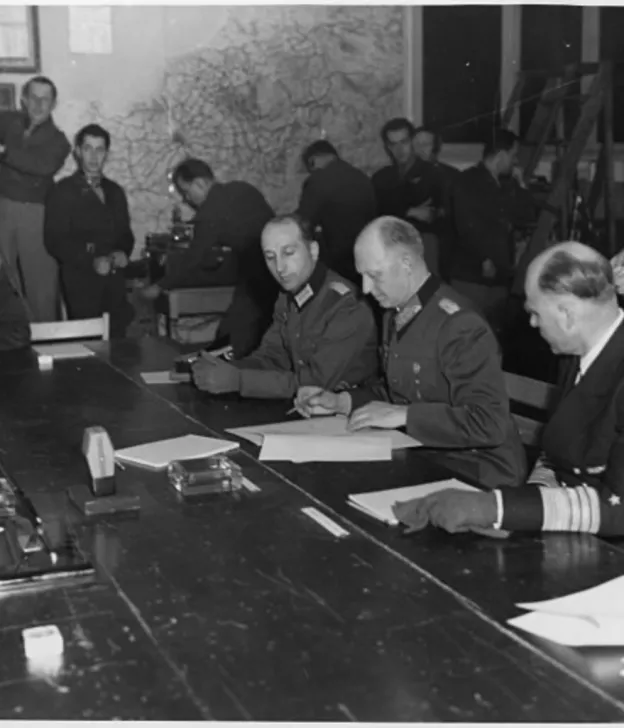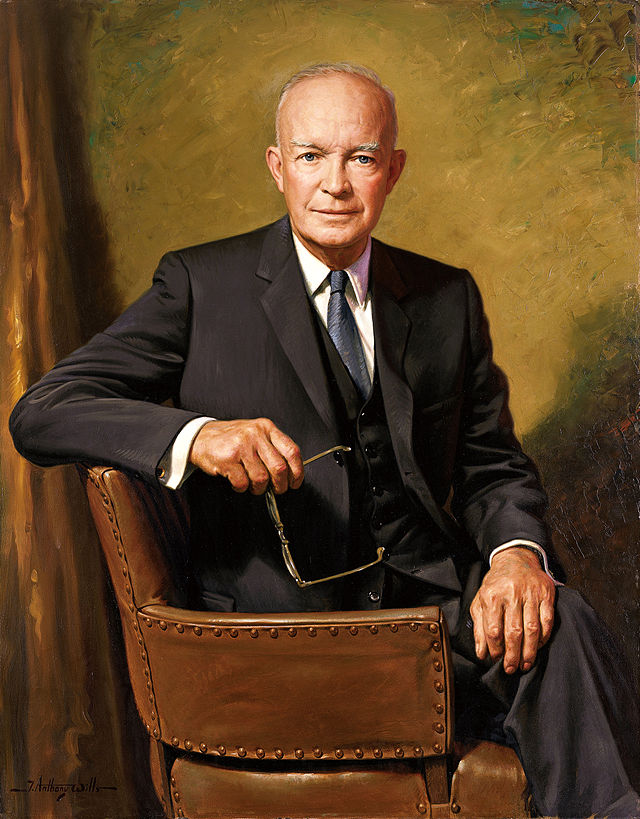
Victory in Europe
We commemorate and reflect upon what VE-Day – or Victory in Europe day – meant for World War II. The German High Command surrenders at American Headquarters in Reims, France, May 7th, 1945 (right.)
Unconditional surrender
On May 7th, 1945, the German forces unconditionally surrendered to the Allied forces, ending the reign of the Third Reich (Nazi Germany) involvement in WWII, which they started six years prior.
While the war would not officially end until the Japanese surrendered on September 2, 1945, this event was largely considered to be the biggest milestone on the road to victory.
Despite its name (Victory in Europe), United States General and Supreme Commander of the Allied Expeditionary Forces Dwight D. Eisenhower played a key role in negotiating the terms of surrender. Although not present at the actual surrender, Eisenhower provided the framework for the Allies’ demands when the Germans surrendered to representatives from France, Great Britain, the Soviet Union, and the United States on May 7, 1945.
General Alfred Jodl, Chief of Staff of the German Army, originally proposed terms of surrender that were favorable to the Germans: Germany would give up fighting against the Allies on the Western front but continue to fight against the USSR on the Eastern Front. Ultimately, Jodl hoped that the Allies would join the remnants of the German army to fight the USSR.
But Eisenhower remained firm and unrelenting. He demanded the unconditional surrender of all Germans on both fronts, which meant that the US would not fight with Germany against the USSR.

Einsenhower’s firm position was largely motivated by the “indescribable horror” he witnessed during his visits to the German concentration camps.
He firmly believed that the German high command were war criminals who deserved swift punishment.
Not ending the war swiftly meant prolonging the horrors Eisenhower “wouldn’t even want to begin to describe.”
As a result, Eisenhower prevented another war and ensured that the war against the Germans would reach a swift conclusion.
A little over a year later, Jodl was sentenced to death at the International Military Tribunal at Nuremberg for crimes against humanity.
The war, which started when the Hitler-led German army invaded Poland in 1939, waged for six bloody years and involved more than fifty nations across the globe.
And victory for the Allies was far from inevitable. It required a steadfast commitment to the principles and freedoms the Allied forces were fighting to defend—and a recognition of what’s at stake if we lost.
In America, that dedication and sacrifice created what’s commonly called the “Greatest Generation”. Born between 1901 and 1927, this generation came of age during the great depression and fought and defeated both Nazi Germany and Imperial Japan. Their many sacrifices for our country remind us of the importance these principles have held throughout history.
As Tom Brokaw said in his book The Greatest Generation, “All of us, no matter our age, are shaped by the events of our time. I say this, knowing today the hardships and sacrifices continuing to be made by our men and women in uniform. The lessons from my generation remain the same: Discipline. Responsibility. Humility. Loyalty.”
At the Jack Miller Center, we strongly believe that the study of our founding principles and history can keep us committed to a love of America and the freedoms she represents. Sharing those principles begins in the classroom with a strong civic education.
